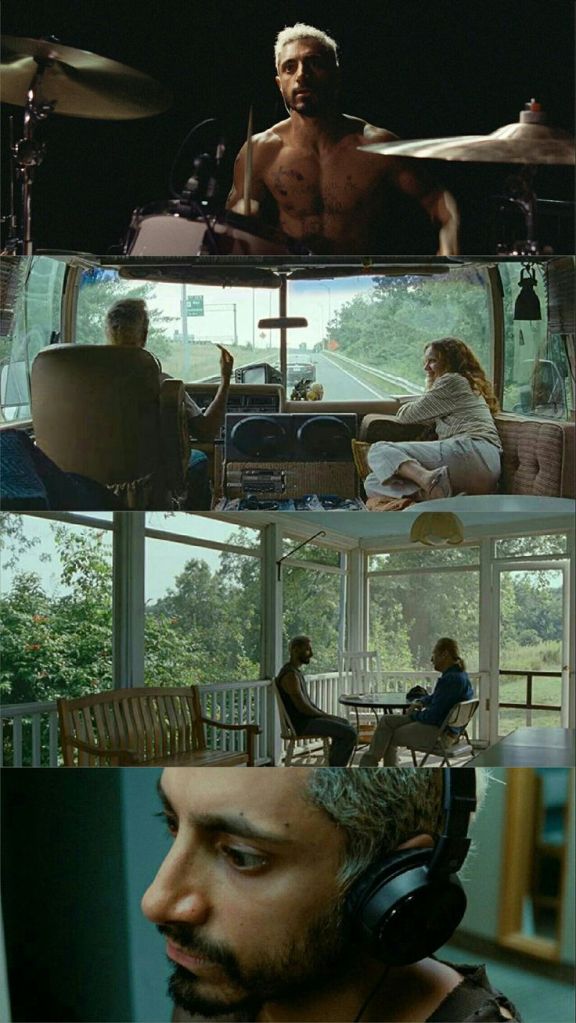Darius Marder’s 2019 ‘Sound of Metal’ is an empathetic and moving film about a young heavy metal drummer Ruben‘s loss of hearing. The title of the film is a play on ‘Sound of Music’ with entirely different, but still gentle themes of perseverance and healing. The movie follows Ruben’s resistance to his new reality, his longing for his former life and his struggles with his own fear and securities. With time, Ruben comes to terms with the silence that had become a part of his life.
Minimalism in cinema means depicting a story realistically by not employing techniques that draw the audience’s focus away from the central plot. Sound of Metal is strikingly minimalistic, in its visual representations and sound design. It is a devastating look at the fight against time and change, but the narrative is also hopeful and eventually peaceful.
The film also delves into themes of self discovery, identity, acceptance, and the search for meaning. Ruben’s ability to play drums is central to his livelihood, including finance and romance. How can a musician be deaf? Ruben reluctantly joins a community of deaf individuals run by Joe, who are learning to navigate the new world as a deaf person, while also accepting themselves. A scene captures this sentiment – for Ruben, the dining table entails meaningless silences. For the members, the dining table carries lively conversations held over excited ASL gestures. However, he is able to mediate between his life-altering loss & former self. He realises he can continue to feel the vibrations and reverberations of percussion, if not the loud drumming itself. But should he go back to his previous ways?
The film is visibly minimalist – the cinematography of Sound of Metal is simple and uncluttered. There is never too much going on, unlike in ‘Uncut Gems’. The visual field of the film is completely clean and aesthetically pleasing – with only the required elements visible. This compels the audience to feel the emotional weight of Ruben’s experience, and to listen to him, visually and audibly. We sit with Ruben, like Joe asks him to, in stillness, watching him unfold and build himself again.

The narrative is very focused and has minimal subplots or distractions, primarily revolving around Ruben’s personal journey and the challenges he faces. This allows for a more profound exploration of the central theme. This approach to storytelling helps the audience connect with Ruben on a deeper emotional level and makes it possible for a concentrated examination of the character’s internal struggles and personal growth. Riz Ahmed’s performance as Ruben adds to the brilliance of the movie. He expresses the character’s feelings through subtle gestures that don’t rely on heavy dialogue or elaborate scenes.
The film is very careful with the way it emphasises sound or pointedly not emphasising it to immerse the audience in Ruben’s experience. The minimalistic approach to sound design and the hardcoded subtitles let the audience feel the impact of his loss of hearing and how he eventually adapts to it. Subtle sounds and silence are used as tools conveying Ruben’s perspective. The intentional limiting of auditory information leads to the audience feeling a very intimate and intense connection to his character.
Every element of the movie adds to what feels like a journey the audience goes through with Ruben. The strategy of minimalism works beautifully for this movie and its plot as it makes you look for the smallest of gestures and every little shift demands your attention, pulling you deeper and deeper in the narrative.
(A review by Mads and Diya)
